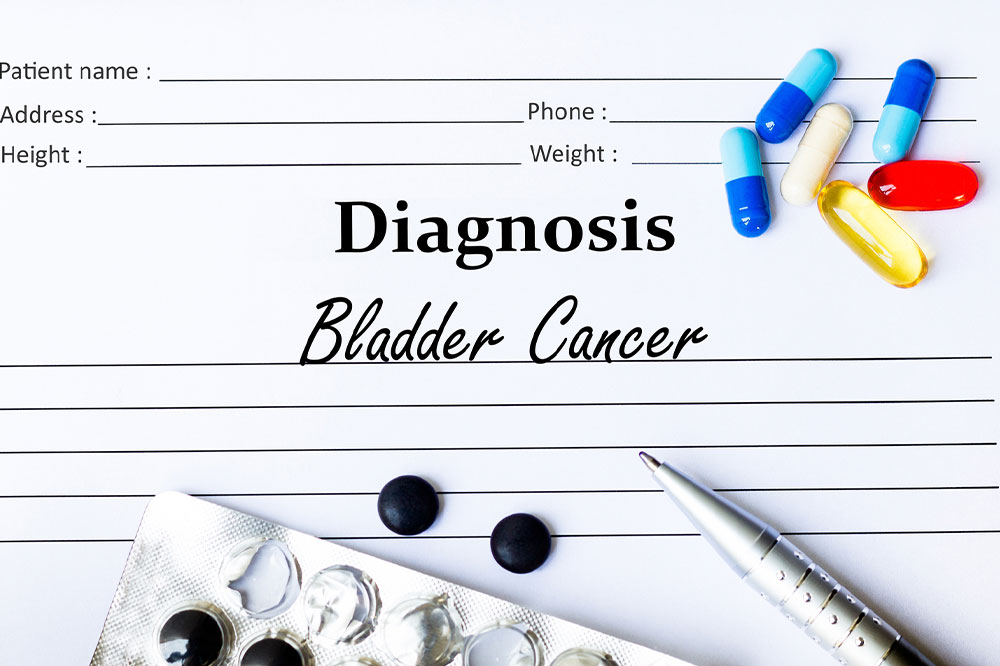Warning signs that could indicate bladder cancer

Bladder cancer is the sixth most common cancer in the country, affecting around 80,000 people every year. Most often, it begins in the urothelial cells that line the inside of the bladder and the ureters. This condition is generally diagnosed at an early stage, improving the chances of recovery. However, despite successful treatment, the cancer may recur. Here are some early warning signs of bladder cancer one must be aware of.
Blood or clots in the urine (hematuria)
This is one of the first signs of blood cancer. It may occur regularly, or appear and disappear over a few days or weeks. In the early stages, this bleeding is not accompanied by any pain or discomfort.
However, blood in the urine could also be a symptom of other conditions such as kidney stones, bladder stones, noncancerous tumors, or other kidney diseases. Consulting a healthcare practitioner for a proper diagnosis can help rule out the possibility of any other diseases or infections.
Moreover, it is important to note that blood from menstruation can show up on a woman’s urine test, causing a false-positive. In such cases, the doctor may recommend repeating the test.
Changes in urination
The following changes in urination are generally a result of benign tumors, infections, bladder stones, or an overactive bladder in men. However, these may also be early warning signs of bladder cancer:
- Frequent urination, especially during the night
- Inability to urinate
- Overactive bladder or the feeling of urinary urgency, even when the bladder isn’t full
- Pain or burning during urination
- Weak urine stream
Symptoms of advanced bladder cancer
As the tumor grows in size and begins to affect other parts of the body, one may also start experiencing the following symptoms:
- Inability to urinate
- Lower back pain on one side of the body
- Weakness or fatigue
- Feet swelling
- Nausea and vomiting
- Joint pain
- Pelvic pain
- Appetite loss
- Difficulty in breathing
Depending on the part of the body the cancer metastasizes (spreads) to, it may also cause symptoms such as:
- Coughing or shortness of breath, when it affects the lungs
- Abdominal pain or jaundice, if it affects the liver
- Pain or fracture, if it affects the bones.
Since there are several health issues with symptoms similar to bladder cancer, it is always advisable to consult with a urologist. They can help identify the root cause of one’s symptoms and recommend treatment accordingly.
Diagnosis and treatment
Tests such as a cystoscopy, biopsy, urine cytology, CT urogram, or retrograde pyelogram may be used to diagnose bladder cancer. Upon confirmation, a CT scan, MRI, PET scan, bone scan, or chest X-ray may also be conducted to determine the extent of the spread. Depending on the stage and type of cancer, doctors may recommend the following lines of treatment:
- Surgery : To remove the cancer cells.
- Radiation therapy : To destroy cancer cells, when surgery isn’t an option.
- Intravesical chemotherapy : This type of chemotherapy is aimed directly at the bladder. The treatment option is prescribed to treat cancerous tumors.
- Systemic chemotherapy : This is chemotherapy for the whole body. This may be prescribed in combination with surgery, or as the primary treatment if the cancer has metastasized.
- Immunotherapy : To bolster the body’s immune system against cancer growth.
- Targeted therapy : To treat advanced cancer when other treatments have not helped.

